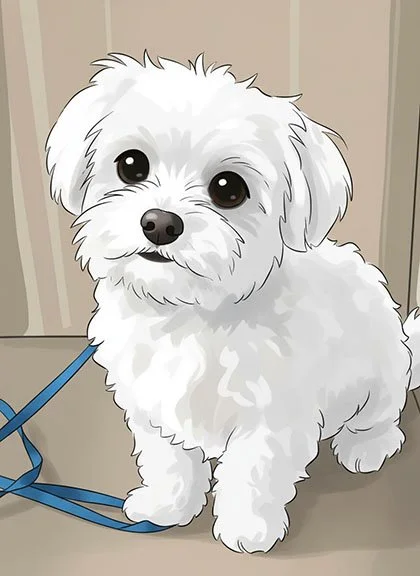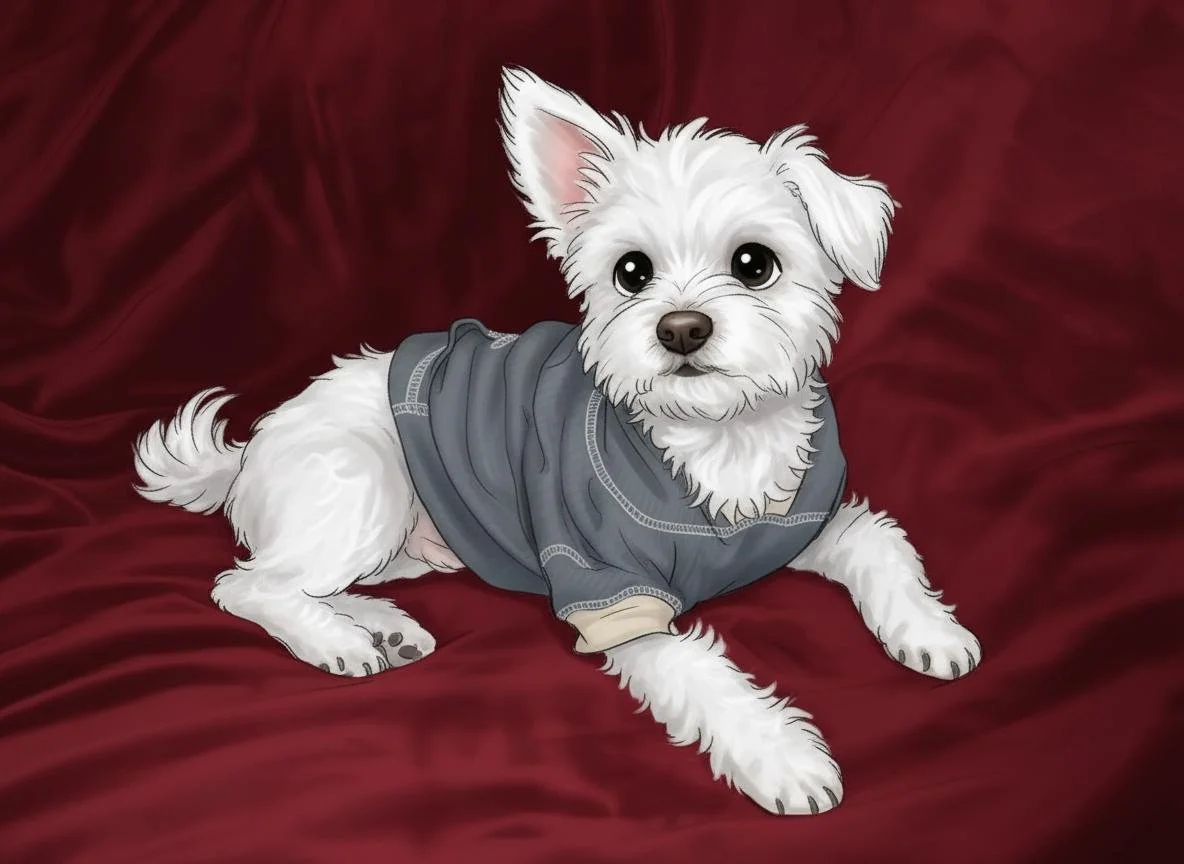
BRINGING YOUR NEW PUPPY HOME …
CRATE TRAINING YOUR NEW PUPPY …
Puppies naturally enjoy having a cozy, secure space to call their own. A properly introduced crate can become their personal den—a safe retreat where they can rest, relax, and feel protected. When used positively, crate training helps puppies build confidence, reduces anxiety, and supports healthy routines like potty training and sleeping through the night. Far from being a punishment, the crate becomes a comforting part of their daily life.
POTTY TRAINING YOUR NEW PUP …
WEE WEE PAD TRAINING …
Pick a Spot Choose a quiet, consistent area in your home. Avoid placing the pad near your pup's bed or food/water bowls.
Introduce the Pad Let your puppy sniff and explore the pad. Some pads are scented to attract dogs to pee on them—if not, you can buy a potty attractant spray or after your puppy urinates wipe the wee wee pad on it to grab the scent.
Know the Right Times Take your puppy to the pad: Right after waking up, after eating and drinking.
After playtime, every 1–2 hours, depending on age (younger - more often)
Use a Command While your puppy is on the pad, use a simple cue like: “Go potty” or “Pee pee”, say it calmly and consistently every time.
Praise & Reward Immediately As soon as your puppy pees/poops on the pad, give tons of praise and a small treat. Be enthusiastic so they know they did something well.
If There's an Accident Don’t yell or punish your puppy it’ll only confuse or scare them. Gently interrupt, take them to the pad, and clean up the mess with an enzyme cleaner.
Be Consistent Stick to a routine and schedule. Keep using the same pad area so your pup associates that spot with going potty.
Gradual Transition (Optional) If you want your puppy to eventually potty outside: Move the pad slowly toward the door over several days. Once it’s outside, guide them there just like you did with the pad.
Most puppies can learn pad training in 1–3 weeks, depending on consistency and age. 8–12 week old puppies need the most frequent trips and supervision.
Reprimanding your Dog does not work Dogs don’t remember peeing in the wrong places. Only immediate correction works, within seconds of them having an accident. Calmly redirect them to the pad. If you come home and find a puddle scolding your puppy will not work. They look guilty and act afraid because they are reacting to your body language and tone of voice, its not that they remember what they did. PLEASE KEEP THIS IN MIND.
OUTDOOR POTTY TRAINING …
Establish a Consistent Schedule Take your puppy outside frequently and especially: First thing in the morning, after eating or drinking, after naps or playtime and before bedtime. Puppies thrive on routine, and it consistency helps them learn faster.
Pick a Designated Spot Always take your puppy to the same spot to go potty. The scent will encourage them to go again in the same place.
Use the same Command Choose a simple phrase like “Go potty” and say it every time they go. Eventually, they’ll associate the phrase with the action.
Reward Immediately Praise and reward your puppy with a treat and enthusiastic words right after they finish. Positive reinforcement is key!
Supervise Closely Indoors Keep a close eye on your puppy when they’re inside. Watch for signs like sniffing, circling, or whining—these usually mean they need to go out.
Limit Freedom Too Soon Avoid giving your puppy too much space too quickly. Use baby gates or keep them in a crate when you can’t supervise directly.
Be Patient with Accidents If there’s an accident, clean it thoroughly with an enzymatic cleaner to remove the smell. Don’t punish your puppy—it only causes fear and confusion.
Dogs are not spiteful Dogs aren’t really spiteful in the way humans might be. They don’t have the same kind of complex emotions or long-term grudges. What can seem like spite might actually be a reaction to something that caused them stress, discomfort, or fear.
For example, if a dog chews on your favorite shoes, it's probably because they’re bored, anxious, or just enjoying the scent, rather than thinking, "I'll show them!" Similarly, a dog might seem to "hold a grudge" against a person after a bad experience (like getting a bath or a trip to the vet), but it’s usually just fear or confusion, not revenge.
Same goes for peeing or pooping accidentally.
DOGS ARE NOT SPITEFUL …
If your puppy shows any consistent signs of anxiety, stress, bad behavior or destructive behavior please seek out a Veterinarians Help.

